The festive season is a wonderful – but wasteful – time of year. Dee Marques shares 10 top practical ways on how to have a more eco-friendly Christmas, including giving gifts that last, buying sustainable trees and decorations, plus other ideas.
As we're getting closer to the Christmas period, most of us are busy and excited making plans for this special time of the year. The festive season is synonymous with time off, family gatherings, and a time for reflection and gratitude. However, as you probably already know, Christmas isn't the greenest of celebrations. So, how can we consider sustainability when it comes to Christmas?
The festive holiday might be the most wonderful time of the year, but it’s also the most wasteful. Indeed, as exciting as the holy season may be, this annual celebration really isn’t eco-friendly. In fact, both consumption and waste peak during Christmas, which is synonymous with excesses of many kinds: purchases, food consumption (and waste), trashed trees, and increased electricity use.
Furthermore, research suggests that household waste in the USA peaks between November and January. During these three months, an extra 1 million tons of waste are produced every week. In the UK, waste figures are just as shocking: 74 million mince pies are thrown away alongside 300,000 tonnes of packaging and 250 tonnes of Christmas trees. Bing Crosby may have sung about dreaming of a white Christmas, but here at happiness.com we're dreaming of a green Christmas!
10 Tips For a More Sustainable Christmas
So, is there anything we can do to change this? Absolutely. A more sustainable, greener Christmas is possible – it just requires a few changes in habits and for us to become more mindful of how we prepare to celebrate. Follow the 10 tips below and contribute to creating a more eco-friendly Christmas: surely that's the best gift we can give to each other and the planet?
1. Sustainable Gifts: The Value of The Old
Sustainable Christmas gifts don’t have to be brand new. Indeed, vintage and second-hand items are going through a revival right now – especially clothing – as more of us realise the value of gifting these unique pieces that have a history and were made to last.
What’s more, the hunt for second-hand treasures is much more exciting than buying something online and shows you have taken the time and effort to really think about what would make a great gift for somebody. Rummage around in a second-hand or vintage store to find that unique sustainable gift for a friend or family member – you may find a present for yourself, too!
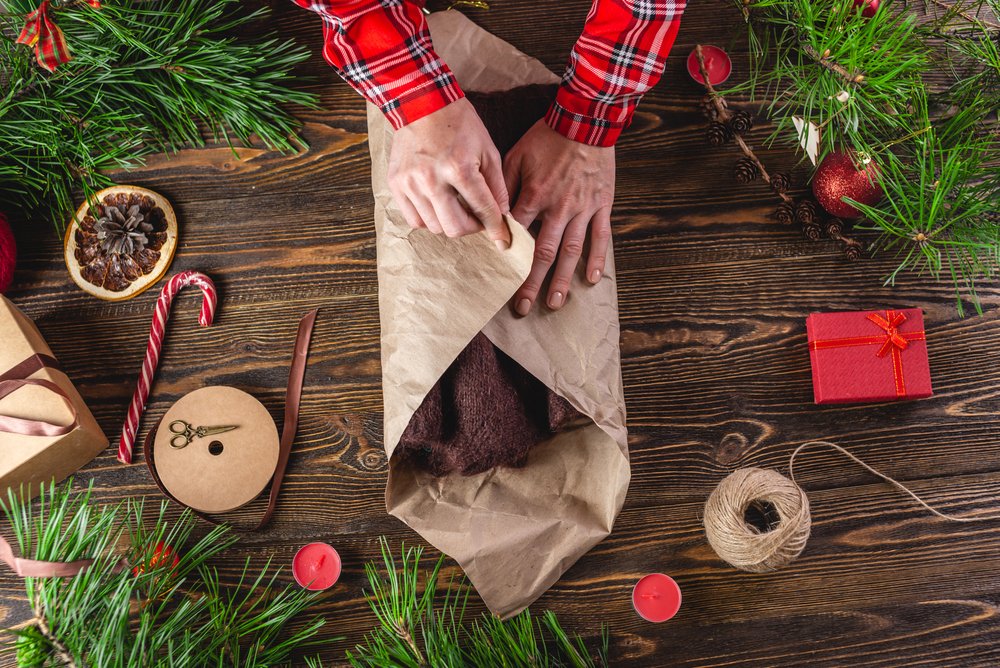 Vintage clothing makes a great sustainable Xmas gift
Vintage clothing makes a great sustainable Xmas gift
2. Sustainable Christmas Cards
If we laid all the Christmas cards that are thrown away after the holidays, they would cover almost 230,000 miles – that’s almost the same as the width of the US from east to west! So, for a more sustainable Christmas, either make your own cards, or be selective with the ones you do buy. Avoid cards that are glossy/shiny or that have a foil layer; they will most likely be impossible to recycle. Also, consider buying charity cards, so that a percentage of your purchase goes to a good cause.
For extra eco-friendly points, get creative and make your own designs on cut-up cardboard waste or paper.
3. Buy Ethically-Sourced Gifts
When it comes to ordering online, do you ever pause to think where your Christmas gifts are manufactured? We've become so used to the ease of shopping through the web that most of us fail to consider where goods are made, by whom, and the conditions workers are dealing with.
“Rummage in a second-hand or vintage store to find that unique sustainable gift for a friend or family member. You may find a present for yourself, too!”
Although globalization puts a huge variety of products at our instant disposal, it comes with its downsides too: there’s a huge footprint involved in sourcing gifts overseas. So, instead, why not buy gifts from local artists and craftspeople? Visit local artisan fairs and find yourself some greener, more sustainable Christmas pressies. Plus, you can be happy in the fact you are supporting your local community – rather than Amazon.
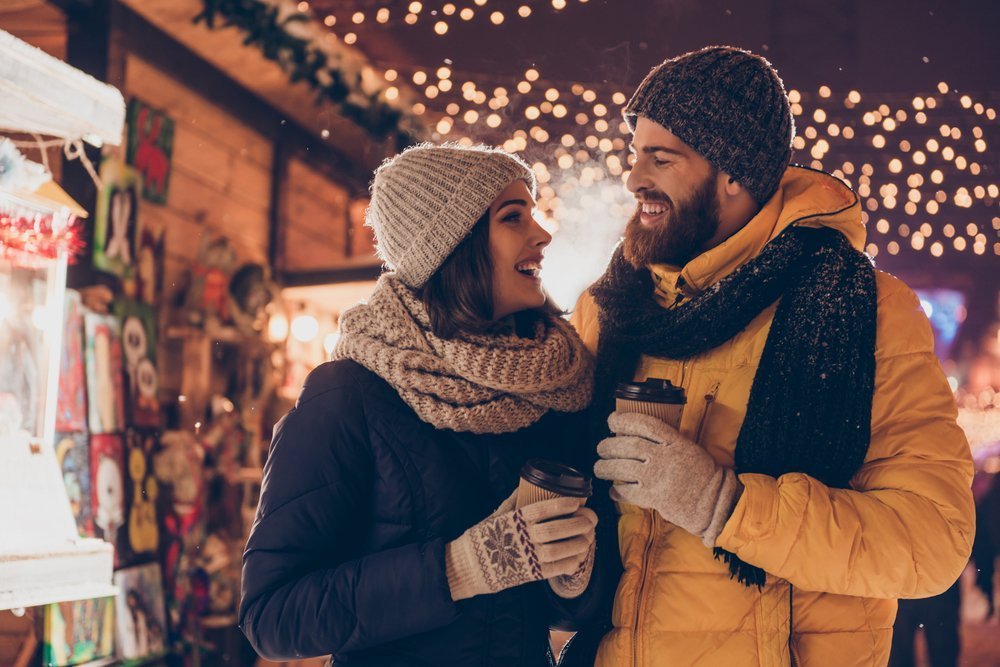 Search local Christmas markets for green gifts
Search local Christmas markets for green gifts
4. Christmas Tree Alternatives
Millions of trees are cut every Christmas only to be discarded, and this is a tragedy for the environment. For a more sustainable Christmas, get creative instead and put Christmas lights and decorations on a large potted plant. Alternatively, stack several terra cotta plant pots upside down to form your own “tree”, or even decorate a wooden ladder that's full of plants and presents.
RELATED:
- What is An Ecovillage? Sustainable Communities That Live and Thrive
- What Are Sustainable Development Goals?
- Chirtsmas and Holiday Grief: 10 Tips For Coping
Interestingly, some farms now allow you to 'rent' a fir for the festive season. You decorate the tree for Christmas, and then in the new year it's collected and replanted. However, if you do decide to buy a real tree, make sure you do recycle it: those in the UK can check out recyclenow for drop-off points. Alternatively, take the tree to your local dump/landfill where it can be disposed of in the green waste area. Seeing trashed trees in the streets after the festive season is a sad sight.
5. Snap Up Gifts That Last
Research shows that in the US the value of unwanted Christmas gifts amount to an astonishing $13 billion, whereas a UK survey claims that up to 60 million gifts will never be used. So, instead of risking that possibility and adding to the stats, why not give something that lasts instead, such as a tree or a plant?
Furthermore, donations are especially welcome at this time of the year, so take time to gather unwanted or unused giftsand take them to a charity. where they’ll be passed on to someone who needs them.
6. Reduce Paper and Plastic
Paper and plastic waste skyrocket during the festive period, but there are ways of making your gift wrapping more sustainable. Reuse wrapping paper from past gifts you’ve received, or use recycled brown paper to wrap presents.
If you’ve got basic sewing skills, you could even try making drawstring fabric gift bags. Remember that not everything needs to be wrapped: consider alternative and more sustainable ways of presenting gifts such as using baskets, tin boxes, wooden boxes, etc. These can then be reused, so they double as a useful gift, too.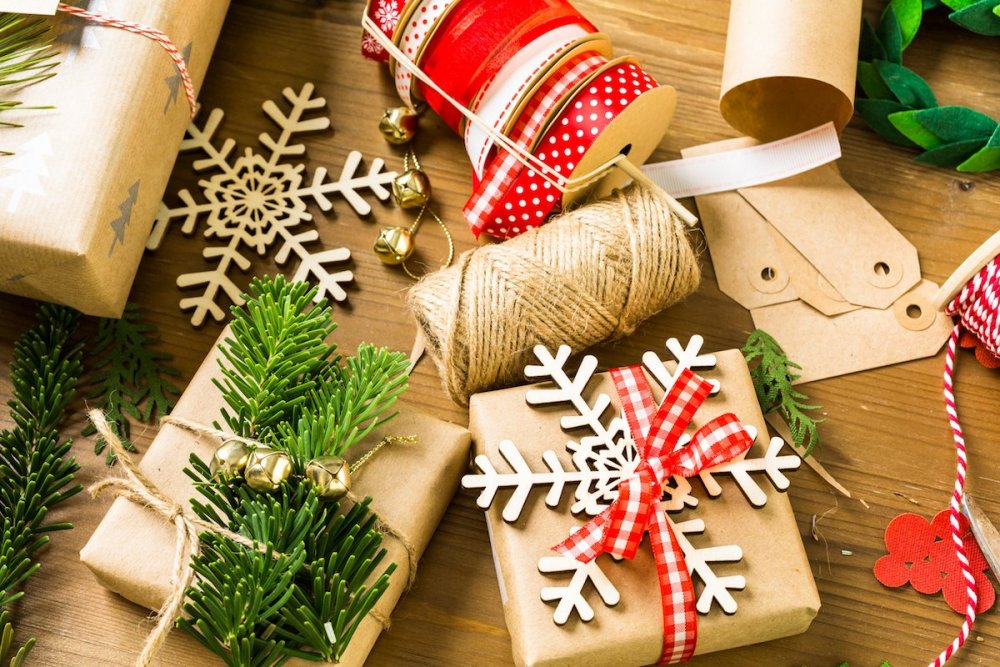
That's a wrap: make your Christmas more eco-friendly with recycled paper
7.Turn the Lights Off
Christmas lights are part of the festive spirit, but while ostentatious house displays can be a joy to look at, they are a serious drain on energy supplies. On a smaller scale, when it comes to your Christmas tree lights, don’t leave them on overnight, or when no one is at home.
“For a more sustainable Christmas, either make your own cards, or be selective with the ones you buy. Avoid cards that are glossy/shiny or that have a foil layer; they will most likely be impossible to recycle.”
Indeed, it really pays to invest in low-energy lights or a timer you can set to ensure you don’t go overboard on your electricity consumption (especially given the price at the moment!). In fact, if every household in the UK converted to LED lights from incandescent during the Christmas fortnight, it would save almost 30,000 tonnes of CO2 and £11 million.
8. Reduce Food Waste
According to researchers, almost 40 per cent of food served during the holidays goes to waste. That's shocking, especially considering how many people less well-off will go without food during that time. As you plan your Christmas meals, really think about how you can use any leftovers for other recipes. And if you do end up with too much leftover food, find a surplus food redistribution group or food bank in your area that you can donate to.
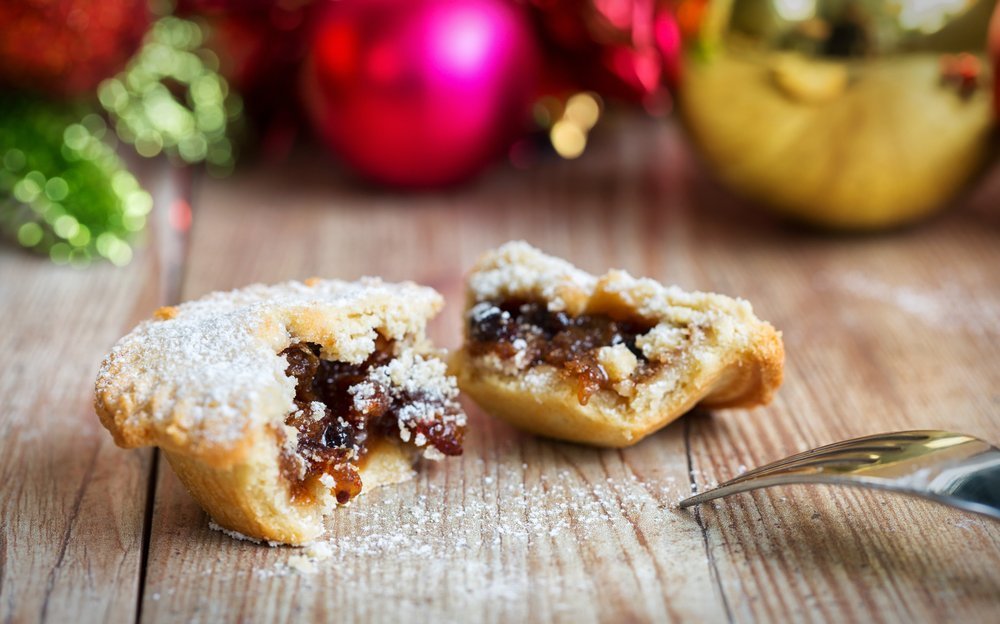 Only consume what you need: don't let food go to waste
Only consume what you need: don't let food go to waste
9. Eco-Friendly Decorations
For a greener Christmas, switch plastic or disposable ornaments for natural or recycled ones. Make it a fun event and get the whole family involved in making a wreath out of used wrapping paper or a bunch of fragrant plants like eucalyptus or spruce. And why not gather a few greens and pine cones to use as table decorations?
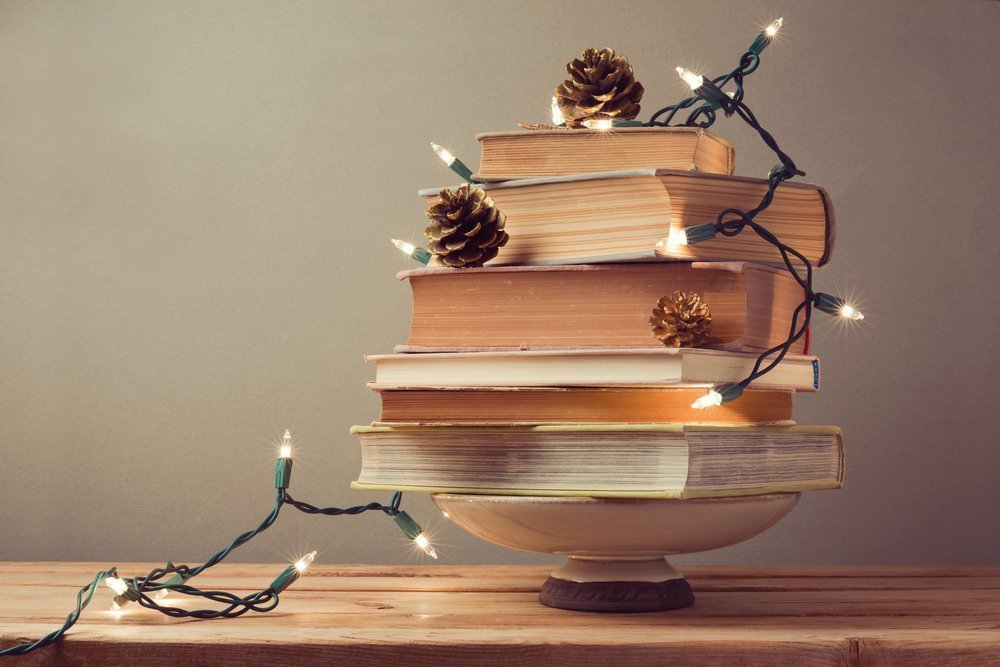 See the light:make an alternative Xmas tree
See the light:make an alternative Xmas tree
10. Volunteer Over Christmas
Giving your time is a generous gesture that can make someone else’s Christmas more memorable. In the UK, more than 10,000 people volunteer at shelters run by three well-known charities, but they’re not the only ones you can contribute to. Smaller organisations in your local area may also need help. And, as well as those less fortunate on the receiving end of care, the benefits of volunteering extend to the person helping, too.
Takeaway: A More Sustainable Christmas
You still have a few weeks left on the run up to Christmas to organize this year’s celebration, so why not start planning for a greener, more sustainable Christmas now? Small changes in habits can go a long way and bring more meaning to the festive season, as well as reducing waste. Whatever you do to make your Christmas more eco-friendly, make sure you enjoy it! ●
Images shutterstock/Arina P Habich, /Rabusta, /Maglara, /Sven Hansche, /Roman Samborskyi
happiness.com | The fine art of being: learn, practise, share
Are you a happiness.com member? Sign up for free now to:
■ enjoy our happiness magazine with practical life tips
■ share and support others in our happiness forum
Family activities | Board Games | Volunteering
Written by Dee Marques
 A social sciences graduate with a keen interest in languages, communication, and personal development strategies. Dee loves exercising, being out in nature, and discovering warm and sunny places where she can escape the winter.
A social sciences graduate with a keen interest in languages, communication, and personal development strategies. Dee loves exercising, being out in nature, and discovering warm and sunny places where she can escape the winter.



Join the conversation
You are posting as a guest. If you have an account, sign in now to post with your account.